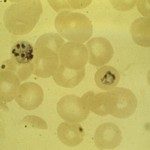Lien vers Pubmed [PMID] – 38450883
Lien DOI – 10.1002/epi4.12914
Epilepsia Open 2024 Mar; ():
Cyclin-dependent kinase-like 5 (CDKL5) deficiency disorder (CDD) is a developmental and epileptic encephalopathy caused by variants in the CDKL5 gene. The disorder is characterized by intractable early-onset seizures, severe neurodevelopmental delay, hypotonia, motor disabilities, cerebral (cortical) visual impairment and microcephaly. With no disease-modifying therapies available for CDD, treatment is symptomatic with an initial focus on seizure control. Another unmet need in the management of people with CDD is the lack of evidence to aid standardized care and guideline development. To address this gap, experts in CDD and representatives from patient advocacy groups from Denmark, Finland, France, Germany, Italy, Poland, Spain, and the United Kingdom convened to form an Expert Working Group. The aim was to provide an expert opinion consensus on how to ensure quality care in routine clinical practice within the European setting, including in settings with limited experience or resources for multidisciplinary care of CDD and other developmental and epileptic encephalopathies. By means of one-to-one interviews around the current treatment landscape in CDD, insights from the Expert Working Group were collated and developed into a Europe-specific patient journey for individuals with CDD, which was later validated by the group. Further discussions followed to gain consensus of opinions on challenges and potential solutions for achieving quality care in this setting. The panel recognized the benefit of early genetic testing, a holistic personalized approach to seizure control (taking into consideration various factors such as concomitant medications and comorbidities), and age- and comorbidity-dependent multidisciplinary care for optimizing patient outcomes and quality of life. However, their insights and experiences also highlighted much disparity in management approaches and resources across different European countries. Development of standardized European recommendations is required to align realistic diagnostic criteria, treatment goals, and management approaches that can be adapted for different settings. PLAIN LANGUAGE SUMMARY: Cyclin-dependent kinase-like 5 (CDKL5) deficiency disorder (CDD) is a rare condition caused by a genetic mutation with a broad range of symptoms apparent from early childhood, including epileptic seizures that do not respond to medication and severe delays in development. Due to the lack of guidance on managing CDD, international experts and patient advocates discussed best practices in the care of people with CDD in Europe. The panel agreed that early testing, a personalized approach to managing seizures, and access to care from different disciplines are beneficial. Development of guidelines to ensure that care is standardized would also be valuable.

